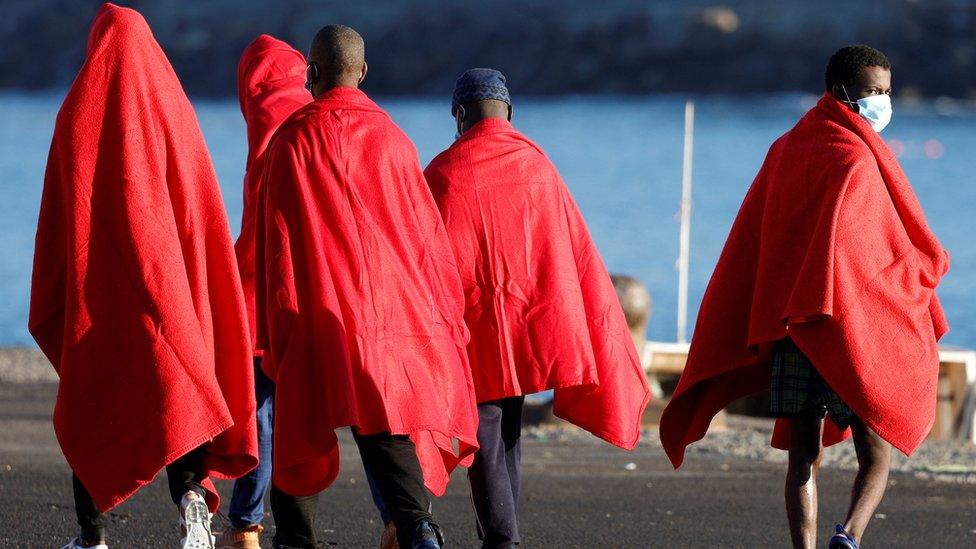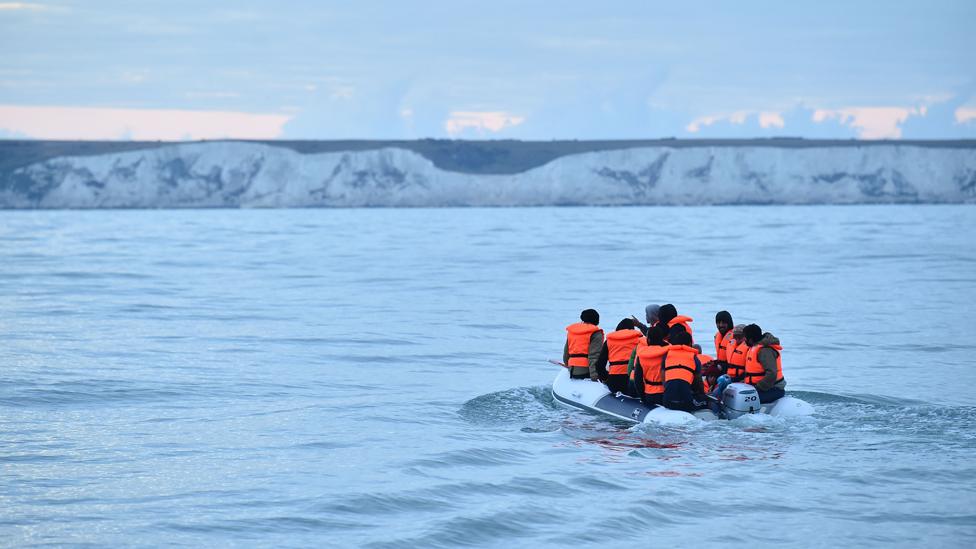People-smuggling ringleader jailed for bringing thousands into UK in boats
- Published
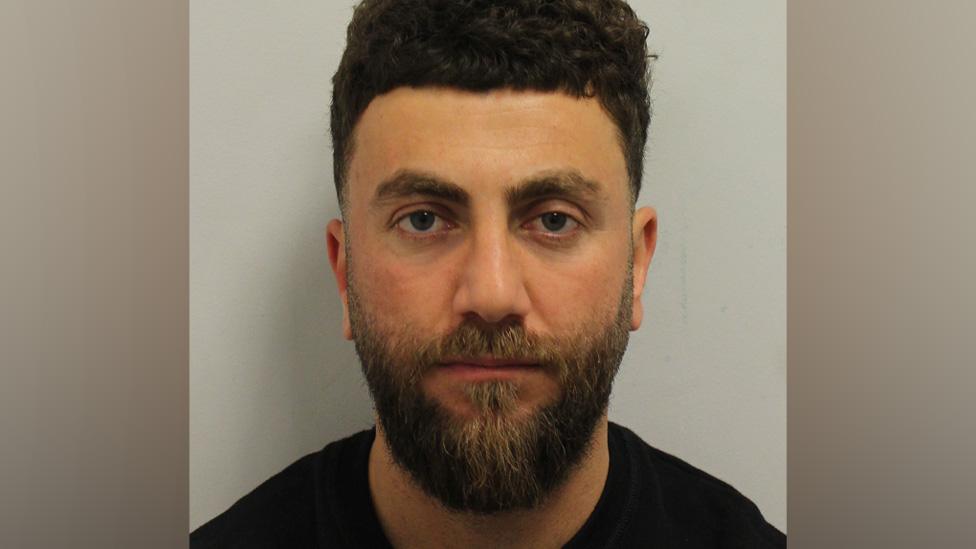
Hewa Rahimpur's arrest in 2022 led to a police operation against his gang in several European countries
A man has been sentenced in Belgium to 11 years in jail for heading one of the most significant human trafficking gangs involved in smuggling people across the English Channel.
Police believe Hewa Rahimpur, 30, was behind a ring that brought 10,000 people to the UK in small boats.
Rahimpur was 23 when he arrived in Britain in 2016 and claimed asylum, saying that as an Iranian Kurd he would face persecution back home.
He was allowed to stay in 2020.
Rahimpur, who was given leave to remain in the UK, set up a barber's shop in London with a friend but then used Britain as a base for a far-reaching criminal operation.
He was in charge of a gang that sourced boats, engines and life-jackets for migrant crossings. They procured the material from Turkey and China and transported it to Germany, Belgium and the Netherlands.
The boats were then moved to the coast of northern France and handed to groups of migrants waiting in Calais and Dunkirk.
The migrants, including women and children, were given basic information about how to use the boats to get to Britain, and then set off across the Channel.
Some of the vessels were very unsafe, held together using gaffer tape and planks of wood.
Migration expert Stef Janssens told the BBC that 30 to 40 people were put in every boat: "The smugglers show no respect for human life. It's actually amazing that there are not more deaths."
It is believed that Rahimpur's gang was responsible for nearly 10% of crossings to the UK in a 12 to 18-month period.
"It's the first time a leading figure of a network using small boats is facing justice," said Mr Janssens, describing the trial as an important step in the fight against international networks of people smugglers.
"This case can be linked directly with 31 people who died in the North Sea," he said.
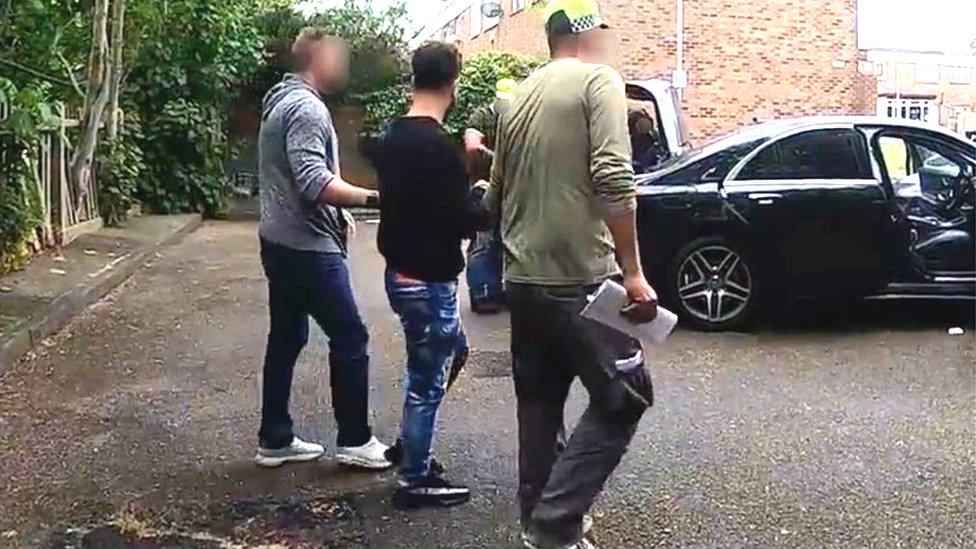
A joint investigation between the NCA and Belgian police led to Rahimpur's arrest
Mr Janssens described seeing an exchange of WhatsApp messages between Rahimpur and people crossing the Channel on one of his boats who asked him to call the police because they were afraid they would die.
In one message Rahimpur replied that they had to keep going until they reached British waters, where the UK Coast Guard would pick them up and take them to the UK.
"From this exchange you can tell these people are really pushing because otherwise they make less money."
A joint investigation between the UK's National Crime Agency and Belgian authorities discovered a number of boats in the back of a car near the Belgian-French border in October 2021.
The police then arrested Rahimpur in Ilford, East London in May 2022. They seized 135 boats, 45 engines and more than 1,200 life jackets.
His arrest was part of a co-ordinated investigation carried out by police in the UK, France, Germany, Belgium and the Netherlands.
More than 40 people were arrested across four countries in one of the biggest law enforcement operations of its kind.
Rahimpur was also handed a €80,000 fine, but authorities believe his 11-year jail term is unlikely to deter human traffickers in the future.
People-smuggling networks are becoming very well organised and much harder for the authorities to pin down.
Since Rahimpur's arrest, people have continued to arrive in the UK on small boats. More than 24,200 people have crossed the English Channel from France this year so far.
And there is a lot of demand.
Migrants pay smugglers large sums just to get a spot on one of their boats, and the gang Rahimpur was in charge of generated nearly €60m (£52m) in 2021.
Even the most dangerous accidents haven't stopped people from trying to get to Europe on small boats. Last June, 500 people are thought to have died when a boat capsized off the coast of southern Greece.
NCA Deputy Director Craig Turner said the criminal networks did not care about the people they smuggled, but the agency would do all it could to disrupt and dismantle the rings bringing people to the UK.
Related topics
- Published25 August 2023
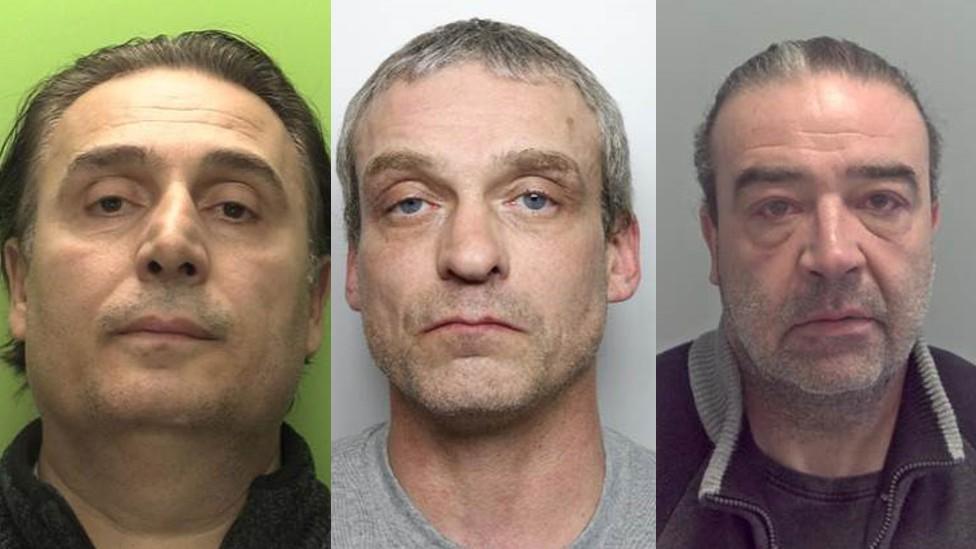
- Published8 October 2022
